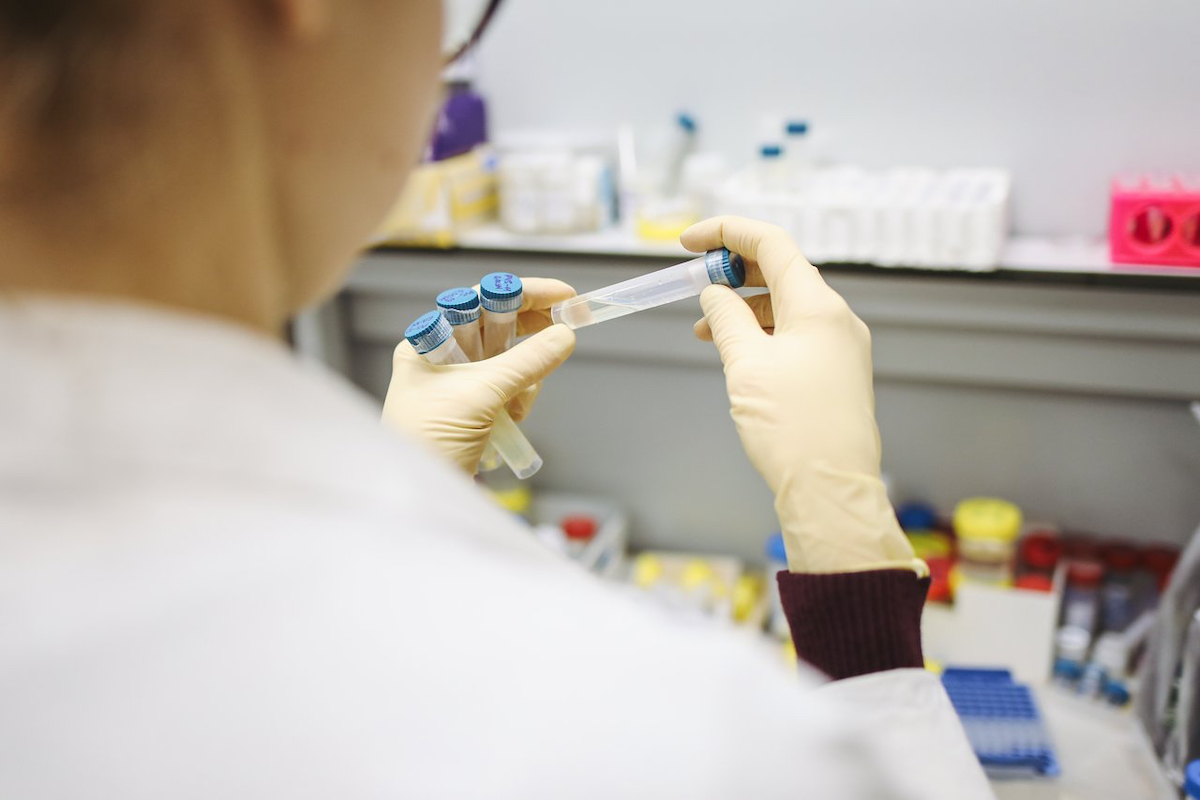Money Moves is a column where we chart the funding raises of tech companies across the region. Have a tip? Email us at philly@technical.ly.
Biotechnology companies have become a huge attraction for VC dollars in the Philly region in the last several years, and a handful of companies in the sector this week have helped prove that growth.
Technological advances have accelerated discoveries across the life sciences, and money is flowing toward therapies, research and in honor of those lost to certain diseases (a family donated $55 million to the University of Pennsylvania for breast cancer research this week). Let’s dive into who’s gotten funding:
SparingVision eyes growth with a Series B
Philadelphia- and France-based gene therapy company SparingVision raised a Series B round, it announced this week, totaling $75.2 million. The round will go toward the first-in-human trails of the company’s gene-independent assets, SPVN06 and SPVN20. It will also help develop genome editing assets through a collaboration with Cambridge, Massachusetts-based Intellia Therapeutics.
Both of the company’s gene-independent assets focus on slowing down disease progression in the eyes or restoring eye function. The financing extends SparingVision’s cash runway to the second half of 2025, the company said. Human clinical trials are expected for SPVN06 late next year.
The round was co-led by Jeito Capital and UPMC Enterprises, with additional participation from 4BIO Capital, Ysios Capital and Bpifrance, the RD Fund and venture arm of Foundation Fighting Blindness.
“With this financing, we are taking a significant step towards achieving clinical validation of our two lead assets and bringing mutation-agnostic genomic medicines to millions of patients affected by IRDs and dry AMD,” Stéphane Boissel, president and CEO of SparingVision, said in a statement. “Our ambition does not stop here, and we remain fully concentrated on our three core pillars of exploration: our mutation-agnostic gene therapies, the genome editing technology toolbox of our strategic partner Intellia Therapeutics and the potential of in-vivo reprogramming in the retina.”
Penn spinout Capstan closed a Series A
A Penn spinout, biotech startup Capstan Therapeutics, launched this week with $165 million in financing to develop in vivo cell engineering for patients with a variety of diseases.
The raise is a mix of $63 million in seed funding for the company last November, and a $102 million Series A round that recently closed. Series A financing was led by Pfizer Ventures and joined by Leaps by Bayer, Eli Lilly and Company, Bristol Myers Squibb, Polaris Partners, Alexandria Venture Investments and a group of existing investors.
The company plans to use the funding to advance the clinical promise of cell-based therapies by enabling in vivo (inside the body) engineering of cells for a range of patients. Is platform uses biological and technical tools to treat patients in two ways: in an outpatient setting, for patients who have diseases for which there are no effective treatments, and to advance new therapies for certain monogenic blood disorders.
“Our founding scientific and operational team is purpose-built to advance programs to the clinic that unite decades of combined experience in groundbreaking CAR therapies with the latest advances in mRNA delivery technology,” Laura Shawver, the company’s CEO and president, said in a statement. “We are also fortunate to have a distinguished investor syndicate that understands the cell therapy landscape and recognizes the potential of this innovative approach. I am thrilled to lead this team as we work toward making this vision a reality for patients.”
EpiVario snagged an NIH grant
Biotech company and Penn spinout EpiVario, which develops therapies for memory-related psychiatric disorders, was awarded a $260,000 grant from the National Institute of Health, it said this week. The grant specifically comes from the National Institute on Alcohol Abuse and Alcoholism, which studies the effects alcohol has on human health.
The grant will go toward EpiVario’s work researching proprietary small molecule inhibitors designed to reduce alcohol craving responses and to prevent relapses. The current standard of care for alcohol use disorder is a combination of detoxification, psychotherapy, and community support programs, like Alcoholics Anonymous. EpiVario’s is developing an epigenetic approach to the disorder that controls neuronal plasticity, which disrupts alcohol-related memory processes. These processes tend to drive the disorder and relapses, the company said.
“This award marks a significant milestone for both our company and the millions affected by alcohol addiction worldwide,” Thomas Kim, president and CEO of EpiVario said in a statement. “We are one step closer to addressing the urgent need for a reliable and safe AUD pharmacotherapy with minimal side effects. We are excited to deploy this funding to advance our preclinical research and aspire to begin human trials by the first half of 2024.”







